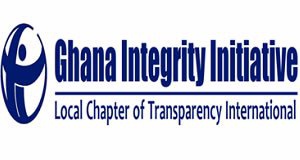Ghana Integrity Initiative (GII), the local chapter of Transparency International (TI), has introduced an advocacy programme to fight corruption and minimize conflict in land administration in the country.
The move is expected to improve upon citizen's access to information and justice on land issues.
Mr Michael Okai, Project Coordinator of GII, said this at the opening of a-two-day capacity building workshop for a cross-section of youth in the Ahanta-West District.
The event was held under the theme: "Land and Corruption in Africa project, 2017"
Mr Okai said GII is poised to build the capacity of the youth in social inclusion, accountability, youth activism and land rights.
He said his outfit has currently targeted three regions namely, the Upper-East, Western and Greater Accra where land litigations are widespread.
Mr Okai said the land sector in the country is quite congested with competing interest such as politicians, investors, international financiers, citizens and power imbalances which has crippled the vulnerable and voiceless in society.
He said the absence of an efficient anti-corruption oversight and redress mechanisms in the land sector to safeguard the rights of ordinary citizens to acquire land without any bottlenecks is a concern.
Mr Okai said it is the aim of GII to contribute to improve the livelihoods of men and women adversely affected by corrupt practices in land administration and land deals through enhanced security of tenure equitable and fair acquisition of land.
He said GII has also engaged traditional authorities who play a front line role in land transactions to ensure circumspection in land deals.
Mr Okai said the main challenge being experienced by GII is the inadequate collaboration with public sector institutions.
General News of Thursday, 31 August 2017
Source: GNA













